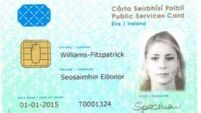One-in-five road deaths blamed on driver fatigue
The Road Safety Authority (RSA) revealed the grim toll yesterday as it unveiled its winter campaign to coincide with the approach of the October bank holiday.
“Driving when very tired is as dangerous as driving while over the drink-drive limit,” said RSA chief executive Noel Brett.













